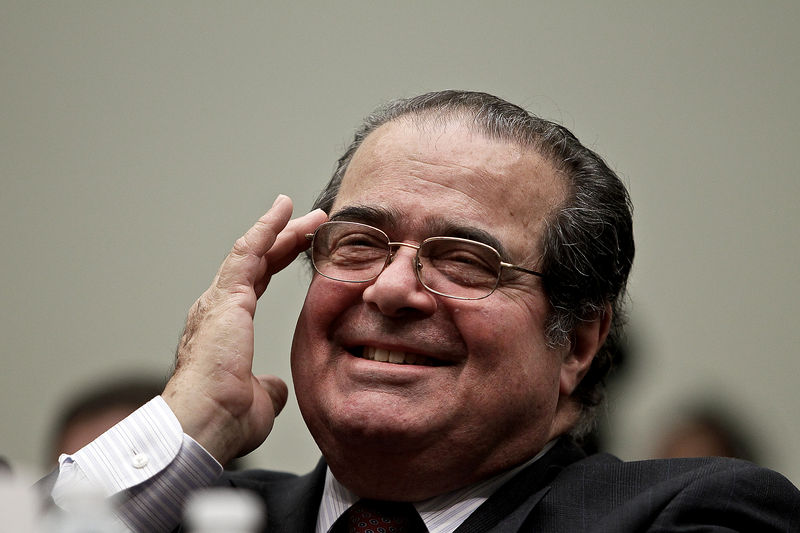
Iconic conservative Supreme Court Justice Antonin Scalia’s untimely death earlier this year has left the High Court split 4-4 on many contentious issues, increasing the stakes of this year’s presidential election because it could decide the balance of the Court for decades to come.
Among the issues that could ultimately be decided by Scalia’s successor is photo voter ID.
During the 2011 Regular Legislative Session Governor Robert Bentley (R-Ala.) signed a voter ID law that went into full effect for the 2014 primary elections. Act 2011-673 requires an Alabama voter to have a specific type of photo identification at the polls in order to vote. Since that time, Democrats across the country have decried the law as “racist” and “hateful”.
In an October 2015 visit to Hoover, Hillary Clinton slammed Alabama Republicans for requiring proof of citizenship to vote and for shuttering driver’s license offices in the wake of state budget cuts. The Democratic presidential nominee insisted that both issues were examples of Republicans trying to return Alabama to its Jim Crow past.
RELATED: Bentley and Clinton spar over whether Alabama Republicans are racists
“We have to defend the most fundamental right in our democracy, the right to vote,” she said. “No one in this state, no one, should ever forget the history that enabled generations of people left out and left behind to finally be able to vote.”
Before that, Vice President Joe Biden chided supporters of voter ID laws in light of liberal defeat in the Supreme Court case of Shelby County v. Holder which stemmed from a legal challenge in Alabama. “These guys never go away,” Biden said. “Hatred never, never goes away. The zealotry of those who wish to limit the franchise cannot be smothered by reason.”
RELATED: Biden: There’s ‘hatred’ behind Alabama’s photo voter ID law
Since 2008, Republican-controlled legislatures in 17 states have adopted new voting-related laws. Among those are Alabama, Georgia, Indiana, Kansas, North Carolina, South Carolina, Tennessee, Texas, Virginia and Wisconsin, which passed laws requiring a photo ID to vote. (h/t The Daily Beast)
Conservatives have long argued it is reasonable to require photo voter ID in order to protect the sanctity of elections, particularly because photo ID is also required for any number of other activities, from buying alcohol and opening a bank account, to getting on an airplane and renting a car.
But several lower courts have in recent months agreed with Democrats’ assertion that such laws are discriminatory.
The United States Court of Appeals for the Fourth Circuit ruled in July that North Carolina’s 2013 voting law was implemented with “discriminatory intent.” The Fifth Circuit Court of Appeals also ruled in July that Texas’ photo voter ID law violates that Voting Rights Act.
Marc E. Elias, an attorney representing some of the groups challenging the photo voter ID laws, told the Washington Post this week that they plan to engage in “hand-to-hand combat” in the legal system. And because a tie vote in the U.S. Supreme Court results in the lower court ruling standing, Scalia’s absence on the bench is allowing Mr. Elias in his allies to rack up victories in the short term.
If a Democrat is elected president, Mr. Scalia’s successor could lock in such victories for the longterm.
RELATED: Democrats call Alabama’s voter ID law ‘racist’ but require DNC delegates to show ID to vote
For the time being, Alabama’s photo voter ID law is an effect, and recent voting suggests it has not suppressed turnout.
There are currently at least 10 different types of ID that are acceptable to use at the polls (including a driver’s license) and the Secretary of State’s office also offers free Alabama photo voter ID cards and free non-driver IDs for purposes of voting.
Don’t miss out! Subscribe today to have Alabama’s leading headlines delivered to your inbox.